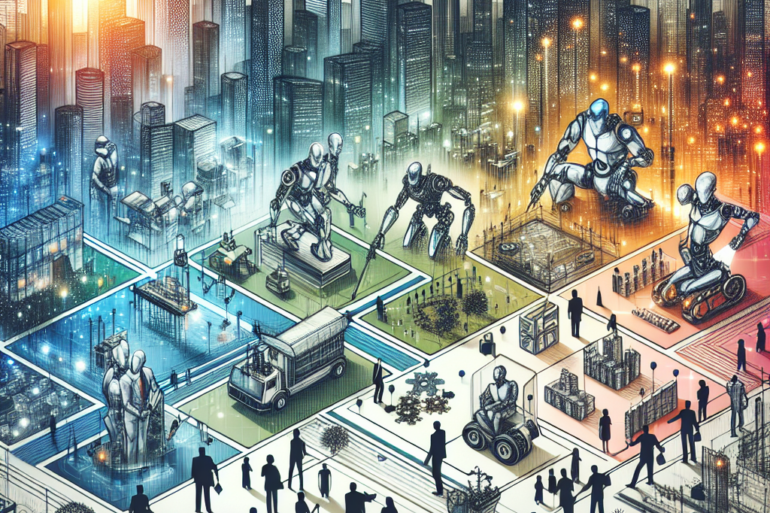The AI-pocalypse: Friend or Foe to the Job Market?
If you’ve been reading the news lately, you might be feeling a little nervous about the future of work. With artificial intelligence (AI) rapidly advancing, many experts are predicting that it will soon automate millions of jobs, leaving countless people unemployed.
But don’t despair just yet! While AI does pose some challenges to the job market, it also presents a wealth of opportunities. In this witty and mind-bogglingly informative blog, we’ll explore the impact of AI on the job market, discussing both the opportunities and challenges it brings, and gazing into the crystal ball to uncover future trends. So sit back, relax, and let’s dive into the AI-pocalypse!
Opportunities Knocking: How AI Can Enhance Your Career
AI isn’t just a job-stealing monster; it’s also a powerful tool that can help you become a career superstar! Here are just a few ways AI can boost your professional life:
Become an AI Superhero: AI can take over repetitive and mundane tasks, freeing you up to focus on more creative and strategic work. Imagine having your own personal assistant that never gets tired or makes mistakes!
Upskill to the Max: AI can provide personalized training and development opportunities, tailored to your specific needs. So, you can keep your skills sharp and stay ahead of the AI curve.
New Jobs, Who Dis? AI is also creating entirely new jobs, such as AI engineers, data scientists, and AI ethicists. If you’re looking for a career that’s both futuristic and high-paying, AI is your golden ticket.
Challenges to Conquer: AI’s Hiccups
While AI has the potential to revolutionize the job market, it also poses a few challenges that we need to address:
Job Displacement: Yes, it’s true that some jobs will be automated by AI. But it’s important to remember that new jobs will also be created, and many existing jobs will evolve to incorporate AI.
Bias and Discrimination: AI systems can inherit biases from the data they’re trained on, leading to unfair hiring and promotion practices. We need to make sure that AI is developed and used in an ethical and responsible manner.
Ethical Concerns: As AI becomes more powerful, it raises important ethical questions about privacy, surveillance, and the future of humanity. We need to have open and honest conversations about these issues to ensure that AI benefits all of society.
Future Trends: A Glimpse into the Crystal Ball
So, what does the future hold for AI and the job market? Here are some predictions to keep an eye on:
AI Everywhere: AI will become increasingly integrated into all aspects of our lives, from our workplaces to our homes. Expect AI-powered devices, services, and experiences to become the norm.
Hybrid Workforce: Many jobs will become a hybrid of human and AI collaboration, with humans focusing on tasks that require creativity, empathy, and social skills, while AI handles automation and data analysis.
Lifelong Learning: The rapid pace of technological change will require us to continuously learn and adapt to new skills throughout our careers. Embracing lifelong learning will be crucial for staying employable in the AI era.
Conclusion: AI: Embracing the Future of Work
AI is not a threat to the job market; it’s an opportunity for transformation. By understanding the opportunities and challenges it presents, and by preparing ourselves for the future, we can harness the power of AI to create a more equitable and prosperous world of work. So, let’s embrace the AI-pocalypse and shape it into a future that benefits us all!




